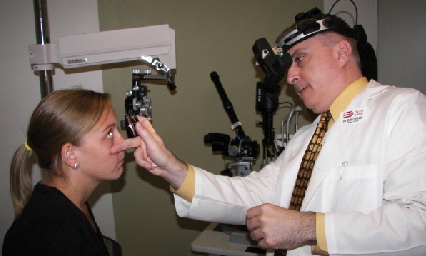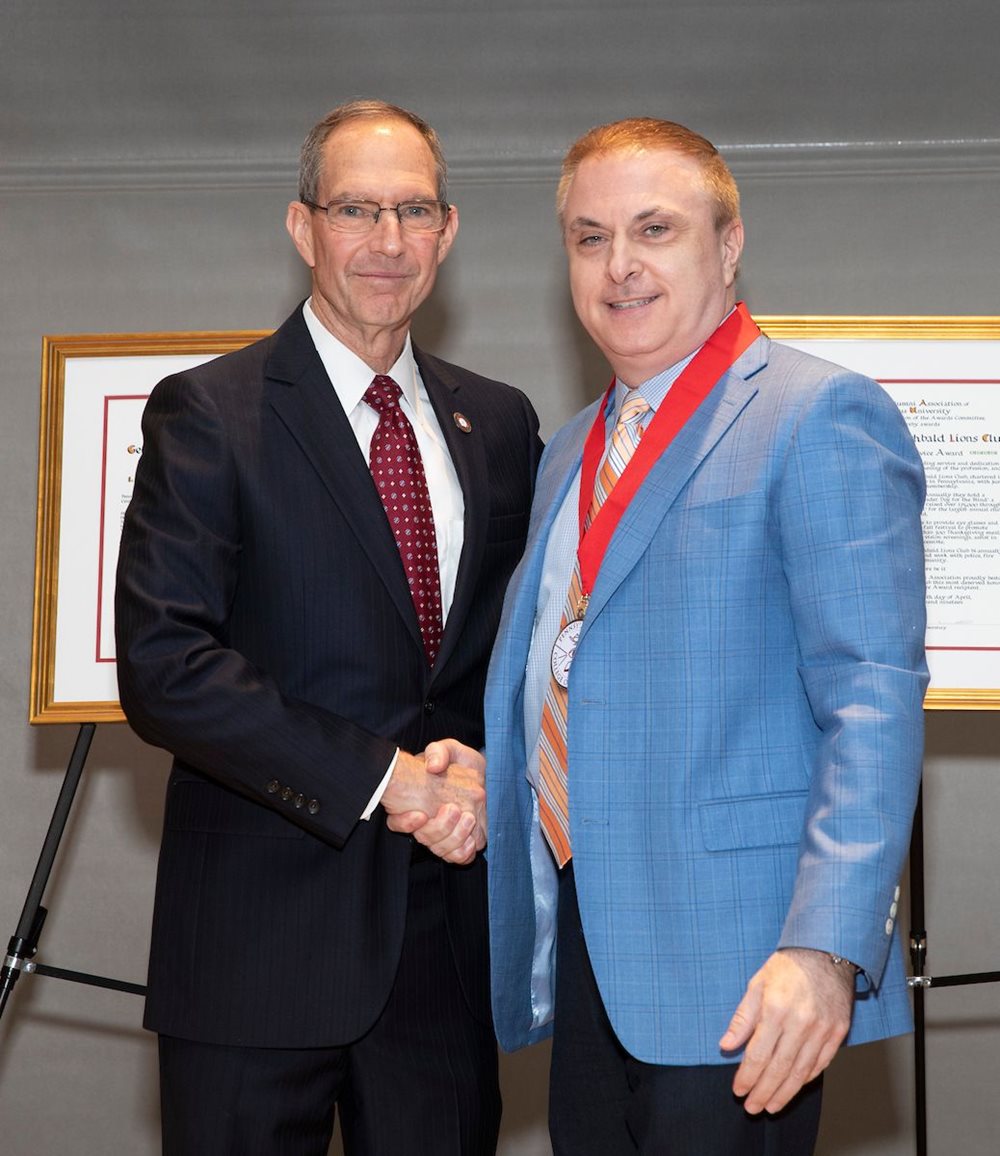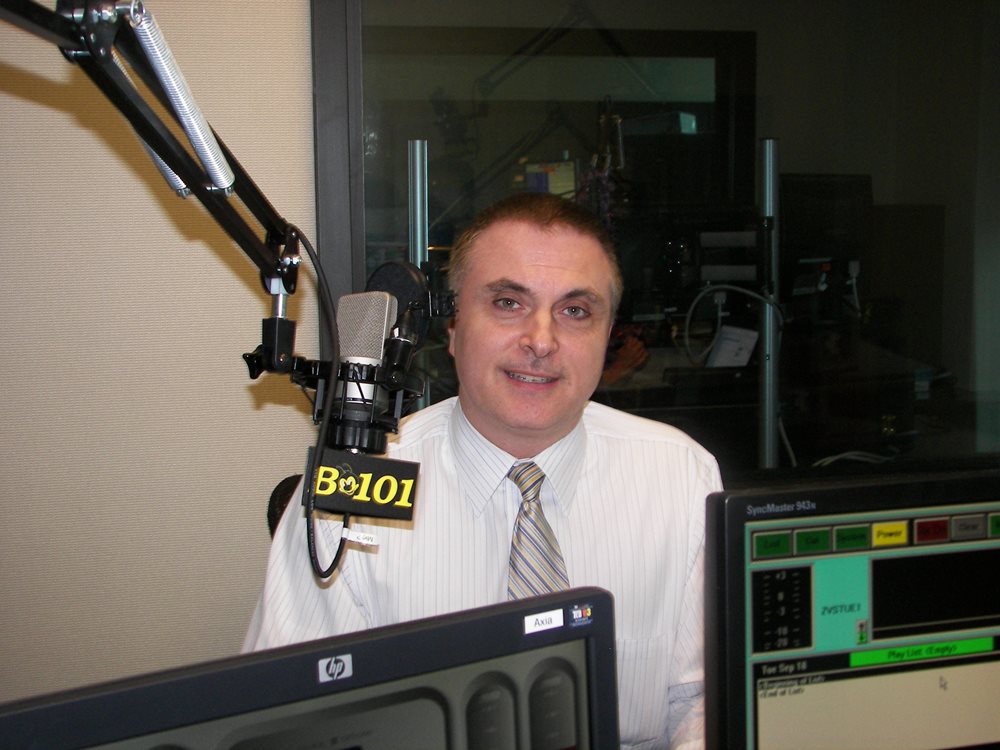When Carlo Pelino, OD ‘94, FAAO, was an undergraduate at Gannon University in Erie, Pennsylvania, he wasn’t sure what field of healthcare he wanted to pursue.
As it turned out, it was actually James Caldwell, OD ‘89, Resident ‘91, EdD, now dean of Student Affairs at Salus University and also an alum of Gannon University that helped influence the direction Dr. Pelino's career path would take.
 “Jim was an alum and he used to come to campus periodically because he was working in Admissions then,” said Dr. Pelino, assistant professor at the Pennsylvania College of Optometry (PCO) at Salus and chief of The Eye Institute at Chestnut Hill. “He had given me enough information that I decided to go into optometry and after I did my research, PCO was the best fit for me.”
“Jim was an alum and he used to come to campus periodically because he was working in Admissions then,” said Dr. Pelino, assistant professor at the Pennsylvania College of Optometry (PCO) at Salus and chief of The Eye Institute at Chestnut Hill. “He had given me enough information that I decided to go into optometry and after I did my research, PCO was the best fit for me.”
In the mid-1990s, PCO was completing its transition from optometry to a more medical model, according to Dr. Pelino. In addition to just doing refractions and contact lenses, PCO was leading the way in turning optometry into a primary care profession.
The other thing that attracted Dr. Pelino to PCO was something most optometry schools didn’t have at the time — The Eye Institute (TEI).
“I was coming into a facility that was state-of-the-art at the time and I was able to apply what I was learning in the basic sciences to my clinical sciences,” said Dr. Pelino. “Your first patient is the diabetic that is uncontrolled. Your second patient is a true ocular emergency. That’s how I knew I had made the right decision.”
 After graduation, Dr. Pelino still wanted to improve his skills and hone them a little more toward his interest in pathology. He accepted a residency at John F. Kennedy Memorial Hospital in Philadelphia, and that’s where he experienced his “aha moment” — that the understanding of the cognitive, which comes over time, has to coincide with mastering the technical skills.
After graduation, Dr. Pelino still wanted to improve his skills and hone them a little more toward his interest in pathology. He accepted a residency at John F. Kennedy Memorial Hospital in Philadelphia, and that’s where he experienced his “aha moment” — that the understanding of the cognitive, which comes over time, has to coincide with mastering the technical skills.
The hospital had its own eye clinic, and as a resident, Dr. Pelino had to visit “the floor” to see bed-ridden patients. At the end of the day, the MDs would send him, for example, to the room of a patient who had an in-dwelling catheter to rule out fungal infection or to the room of an uncontrolled diabetic or an HIV patient, to rule out ocular involvement.
“I realized that when I really had to start talking to these physicians, we were speaking a bit of a different language,” said Dr. Pelino. “I was talking in what I would call ocular terminology but they would be talking in true medical terminology and its relationship of the organ systems of the body in which I wasn’t yet experienced.”
When he finished his residency at JFK, the hospital had an opening for a staff optometrist and offered the job to Dr. Pelino with one of the hopes being that his connection to PCO would enable more PCO students to learn from JFK and see the value of applying to a residency program.
The arrangement worked perfectly, but four years later in 1998, PCO decided it wanted him back. Not only that but it wanted him to stay at JFK, join the PCO faculty and work more directly with the students.
When JFK closed its doors in 2000, Drs. Pelino and Jeffrey Nyman, associate professor at PCO/Salus and director of Emergency Services at TEI, started the Mount Airy satellite, which relocated to Chestnut Hill in 2012.
In 2004, from an opportunity presented to him by then PCO president Thomas Lewis, OD ‘70, PhD, FAAO, and then dean and vice president of Academic Affairs, Anthony Di Stefano, OD ‘73, MEd, MPH, FAAO, Dr. Pelino accepted a retinal fellowship for a year with Steven Sinclair, MD, at Crozier-Chester Medical Center and Riddle Memorial Hospital in suburban Philadelphia. That opened some other doors for him as well.
“That retinal fellowship and mentorship with Dr. Sinclair helped me to create a continuing education business where I routinely go out and give lectures throughout the country,” said Dr. Pelino, who received the Salus Presidential Medal of Honor Award in 2019. “And, it also got me into the litigation field. Lawyers call me if they want me to look over certain cases that have a retinal aspect, which has been very educational for me.”
 Because of his lecturing, Dr. Pelino discovered a love for travel — something he hopes to get back into once the pandemic is under control. He also enjoys watching college football and baseball and he has an intense interest in history of the Bronze Age and Iron Age as well as in philosophy — Thales (of Miletus), Socrates, Plato’s Analogy of the Cave and Aristotle.
Because of his lecturing, Dr. Pelino discovered a love for travel — something he hopes to get back into once the pandemic is under control. He also enjoys watching college football and baseball and he has an intense interest in history of the Bronze Age and Iron Age as well as in philosophy — Thales (of Miletus), Socrates, Plato’s Analogy of the Cave and Aristotle.
“The reason I find those people interesting is because I like to read what they wrote at that moment in time,” he said. “They wanted to know about reason and logic and physics and morality and ethics. They were seeking the same things 2,500 years ago that we are today.”
Dr. Pelino sees a bright future for PCO/Salus as it continues to be more than just an optometry school. He believes the visionaries who pushed to turn PCO into Salus University and add programs like Audiology, Physician Assistant, Occupational Therapy and Blindness and Low Vision programs over the years were wise to transition the school into a more medical model.
“Optometrically speaking, the end product is very good here because TEI allows students during their younger years to see what they need to see and then they can refine their skills as a fourth-year,” he said. “For the University itself, I’m happy to say the changes that I’ve seen have been all positive. It’s nice to see that we’re growing, but it’s also nice that we have the interdisciplinary studies and that we can all interact. I hope we continue to grow.”